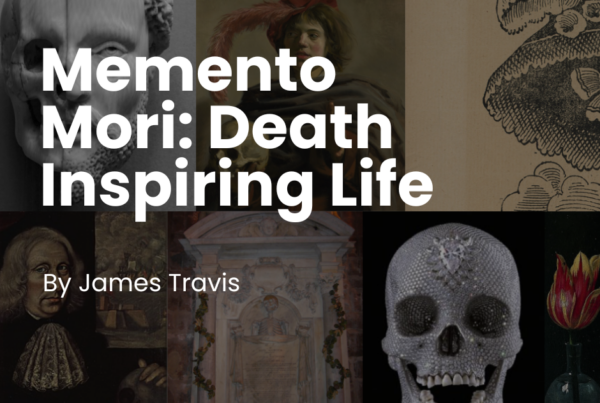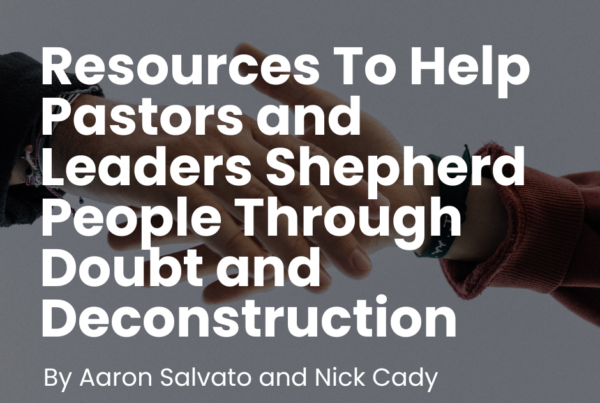
The term “relevant” is one of those hot button words in modern church culture. When most people talk about being relevant they are generally thinking in terms of how we must never be found irrelevant in our efforts to communicate the Gospel to fallen culture. For most Christians and for many in ministry that is a factor of conformity to the vocabulary, style and lifestyle. Without a doubt, those are important components to the advance of the Gospel. Hudson Taylor shocked his contemporaries when he set aside traditional British dress and style and began to dress like the people he desired to win to Christ on the mission field. A decade ago my two older children told me I needed to “lose the Hawaiian shirts!” At the time there were hundreds of young adults and teens coming to a Monday night Bible study I was teaching and it didn’t feel un-relatable or “irrelevant.” My kids understood culture better than I did. They saw where it was headed and that was their way of letting me know that I was not as “connected” with the people I was ministering to as I thought. This is what I believe is the really big idea wrapped up in our concern for relevance.
As I began to write this, the first thing I did was look up the definition of “relevant.”
relevant |ˈreləvənt|
adjective
closely connected or appropriate to the matter at hand
Then I looked at a thesaurus and found a specific word that really brought clarity to the whole idea of relevance: related.
Relevance is not primarily about being “relatable.” It is about being “related” — it’s about being connected! The most “relevant” church is not necessarily the one that most resembles its culture — or is most “relatable” — it is the one truly connected to the culture it desires to reach. The ultimate example is Jesus. Jesus is God become man. In His desire to reveal Himself to man and redeem man, Jesus did not merely go out of His way to “resemble” man. He literally became related to man. God incarnate had a genealogy!
He was on every level “connected” with the men and women who desperately needed to know about the Good News of the Kingdom of God.
So if relevance is not just resemblance; not just about being relatable, where do we begin to move towards being relevant? First let me say this, you are probably way more relevant than you think! Britt Merrick framed it like this:
All of us have people that are “our people.” The people in your home, your neighborhood; your office, your class room; where you shop, where you hang out; where you work out — those people are your people. There is nobody better to reach your people than you. You are with them. You get them! You understand them! You speak their language.
In other words — you’re connected to them. All of that is by God’s doing. And by God’s plan you are perfectly suited to tell them about Jesus.
That being said, it’s also possible (simultaneously) to be living in segment of culture and have zero connection with it. Or, God can move you into a new city, or send you into a totally foreign culture, and you can find yourself very unconnected within it. Here are THREE THINGS drawn from the life of Paul in Acts 17 that can serve us well in understanding “relevance.”
Now while Paul was waiting for them at Athens, his spirit was provoked within him as he saw that the city was full of idols (Acts 17:16 ESV).
1. Paul wasn’t self-absorbed, engaging Athenian culture only as it might benefit him.
Neither was he a casual observer, Paul had a passion to reach people with the Gospel. If we really want to be “relevant” we need to know the people we desire to reach. We will never really be connected or related to our cities until we get to know them. We need to get to know about the people in our cities.
I came across an article with a list of helpful questions we should be asking about our cities:
– What’s happening in my city?
– Who’s moving into my city?
– What buildings are going up in my city?
– What buildings are coming down in my city?
– How many schools are there in my city?
– How many people are here in my city?
– What is the crime rate like in my city?
– What are the goals of my city?
– What are the values of my city?
– What are the beliefs of my city?
– What is the history of my city?
– How long has my city been a city?
– At what times and days does everything come alive in my city?
– What do the people in my city love about my city?
– What do people despise about my city?
– What’s the media saying about my city?
– What do people in my city put their hope in?
– Who’s hurting in my city?
– Who’s succeeding and thriving in my city?
If you want to know the answers to those questions don’t isolate yourself from your city — engage it — get connected to it! Your neighbors are a microcosm of your city — watch and engage! The teller at your bank, the person ringing you up or bagging your groceries at your grocery store, or your hair stylist, will tell you a whole lot about your city because they are the city; they’re in it, they know what’s going on in it. There’s one young lady in our church who came to know Jesus (and is now a dear friend of our family), because my wife, Valerie, got to know her while this young woman would cut and color her hair.
2. Paul saw Athens for what it was — a city of idols.
Do we see our cities as fallen culture sees them or do we see them as God sees them? No doubt, if the internet existed at the time of Acts 17 (c.50 A.D.) we would find something like this at the official website of Athens.
Athens — the city of Pericles and Demosthenes, Socrates and Plato and Aristotle, Sophocles and Euripides. Socrates taught in the Agora of this great city. It was the home of the Academy of Plato, the Lyceum of Aristotle, the Porch of Zeno, the Garden of Epicurus. Today men still talked about philosophy, poetry, politics, religion, anything and everything. Athens is still the art center of the world and home of the Parthenon, the most beautiful of temples which crowns the Acropolis.
–A.T. Robertson, Word Pictures in the New Testament
Paul no doubt walked around this famous city like any first-time visitor. But he didn’t see Athens like a tourist. Paul saw past the learning, the literature and the philosophy. Paul saw past the artistic-beauty of the best that Greek sculptors and architects could offer. Paul saw Athens through the lens of the Gospel.These statues were beautiful, but Paul was not deceived by the mere art for art’s sake. The idolatry and sensualism of it all glared at him.
-A.T. Robertson, WordPictures in the New Testament
3. Real relevance begins with being related to; connected to Jesus.
Follow me here. Paul not only saw Athens for what it was — a city of idols; Paul was wrecked by what he saw. He saw and he felt! It was a powerful response and reaction. He was provoked. A form of this Greek word ultimately found its way into the medical world in relationship to seizures and epilepsy. The word paroxúnō (provoke) is listed as the prefix pará, meaning “at the point of, unto”, implying movement toward a certain point. The suffix oxúnō means “to sharpen, incite, or irritate”. Thus, the word provoke is defined as “to urge on, stimulate” to a point of action.
I believe Paul was very connected to the heart of Jesus in this. Jesus is God who became man. God Incarnate saw and felt! God Incarnate looked at the city Jerusalem and wept for it.
And when he drew near and saw the city, he wept over it, saying, “Would that you, even you, had known on this day the things that make for peace! But now they are hidden from your eyes” (Luke 19:41-42 ESV).
The Book of Acts teaches us that the relevance we need most be concerned with is first and foremost vertical in nature! Relevant church and relevant ministry, is relational — it flows from relationship to Jesus. Acts is the record of Jesus continuing to work through the agency of the church. Paul looked at Athens and was provoked because he was connected to the heart of Jesus who looked at Jerusalem and sobbed convulsively.
Paul looked at the city of Athens and was provoked by it. Jesus wept because they knew the truth, but they didn’t want it. Paul was provoked because they wanted the truth but didn’t know where to find it. Think about this: Athens was home to men and women who had 800 years of Greek Mythology and 500 years of philosophy — and they were still searching!
TWO CLOSING POINTS OF APPLICATION:
1) As we live on and participate in Authentic Mission we are going to engage those who know the truth but don’t want it — and we will also engage those want the truth, but don’t know where to find it. Which best describes your city, your family, neighbors, classmates and co-workers?
2) I think that it’s safe to say that if weren’t provoked by what we see, we probably aren’t seeing things through the lens of the Gospel.
But if we are seeing the world as Jesus sees it —we will be urged on, to the point of action, as Paul was. Paul was provoked to tell men and women about the true and living God.









